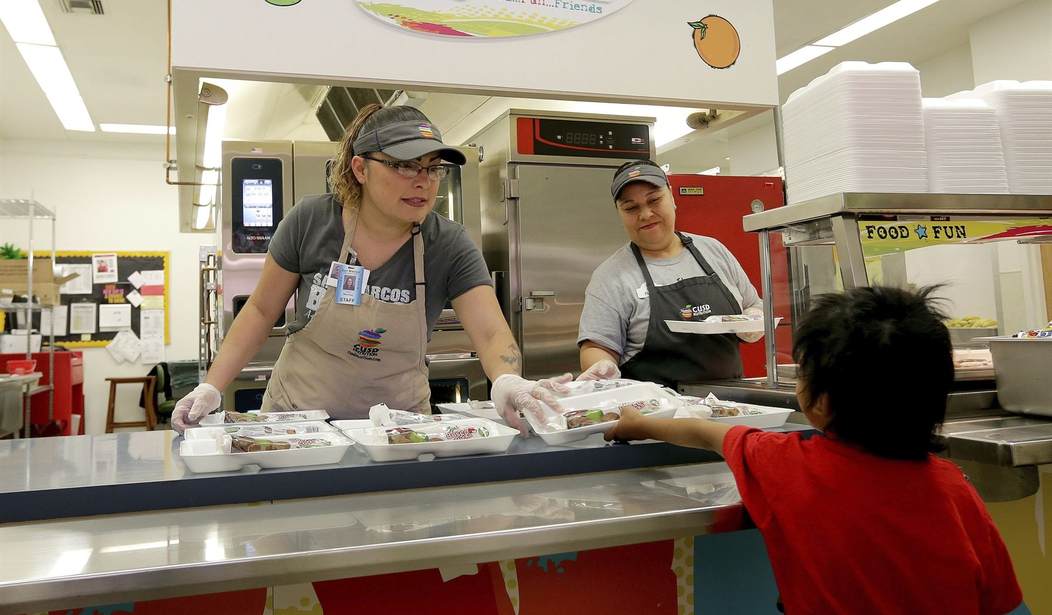The California state Legislature has voted to pass a bill that, if the governor signs it, would make the Golden State the first in the nation to ban six chemicals, some of them artificial dye additives (food coloring), in foods from all of the state's public schools.
The California Legislature has passed a bill with bipartisan support banning the use of red dye No. 40 and five other chemicals in foods served at public schools.
On Thursday, the Golden State became the first in the country to pass a bill that, if signed into law, would forbid the use of the ingredients found in some popular cereals, ice creams, drinks, candy, ice pops, cheese-flavored chips, jellies and more, according to the Environmental Working Group, a nonprofit environmental health organization that cosponsored the law with Consumer Reports.
Known as the California School Food Safety Act and introduced by Democratic Assemblymember Jesse Gabriel in February, Assembly Bill 2316 prohibits a school district, county superintendent of schools or charter school with grades kindergarten through 12th from offering foods or beverages containing red dye No. 40, yellow dyes Nos. 5 and 6, blue dyes Nos. 1 and 2, and green dye No. 3.
During a briefing held by EWG in early August, Assemblymember Gabriel called his proposed law “important to me as a parent, it’s important to me as somebody who’s struggled with ADHD as a child, and it’s important to me as a parent of a child who is struggling with ADHD."
He continued:
We know that the synthetic food dyes that are targeted by this bill can cause harm for all kids, but we know that there is a specially pronounced impact on a lot of our young people with ADHD and other challenges.
The legislation was inspired by a 2021 study by the California Office of Environmental Health Hazard Assessment, which claimed that "these dyes would harm children’s ability to learn, as they have been linked to behavioral difficulties and decreased attention among children."
A major food industry group, the Consumer Brands Association, also responded to the pending legislation:
John Hewitt of the Consumer Brands Association, which represents more than 1,700 brands, said in a statement that “it’s unfortunate that scientifically proven, safe ingredients have been demonized for the purpose of advancing a political agenda.
“No industry is more committed to food safety than the consumer packaged goods industry. It’s why we have urged the FDA to aggressively acknowledge its responsibility as the nation’s food safety regulator,” Hewitt, senior vice president of packaging and sustainability and state affairs at the association, said via email. “The passage of this bill could cost schools and families money, limit choice and access, and create consumer confusion.”
The Food and Drug Administration (FDA) released a statement, too:
“Reassessing the safety of chemicals in food as new, relevant data become available is a priority for the FDA,” the agency said in a statement. “The FDA has reviewed the research on the effects of color additives on children’s behavior including the literature review cited by the Bill. The totality of scientific evidence shows that most children have no adverse effects when consuming foods containing color additives, but some evidence suggests that certain children may be sensitive to them.”
In addition to the FDA’s own evaluations, the agency also supports and participates in international risk assessments conducted under the Joint Food and Agriculture Organization of the United Nations/World Health Organization Expert Committee on Food Additives.
It continued:
"All the colors listed have recently undergone assessments for safety in food by the JEFCA and were found to be safe for use in food under current use conditions,”
The FDA said it will "continue to assess the emerging science and ensure the safety of approved color additives," and will convene a public meeting in September, according to the statement.
We'll keep you posted.
Read related:
Parents Defending Education Drops Another Disturbing Report About Chicago Schools VIP













Join the conversation as a VIP Member